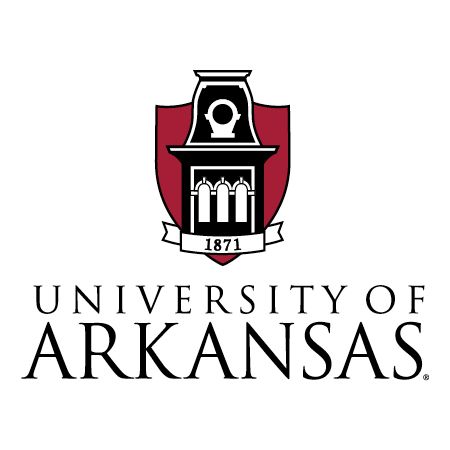Summer break means fun in the sun for most undergraduate students, and for some it means working to help pay for their next semester of school; but there are some students who are able to combine work and play by gaining research experience in their respective fields of study.
The University of Arkansas office for sustainability, in collaboration with the Fulbright College of Arts and Sciences; the Bumpers College of Agricultural, Food, and Life Sciences; and the College of Engineering, is delivering a Research Experience for Undergraduate program this summer with funding from National Science Foundation and the United States Department of Agriculture. The 10-week program started May 19 and is offered to undergraduate students from the U of A and around the United States. Students who have earned one of the competitive positions in the program receive room-and-board, as well as a $500 stipend per week over the 10-week period.
“Students applied from all around the nation,” said professor Marty Matlock, executive director of the office for sustainability. “We had over 70 applicants for the 20 slots that we awarded. The program supports about one third U of A students, so it’s a great mix of student talent.”
This Research Experience for Undergraduate program, or an “REU” as they've become know, focuses on sustainability and ecological issues, and it is one of several being offered on the university campus this summer. This REU program covers analysis, design and restoration of sustainable ecosystem services, and is referred to as the EcoREU program.
Matlock is the 2014 co-director for the NSF/USDA REU program, along with U of A faculty Michelle Evans-White of the biology department and Thad Scott of the crop, soils and environmental science department. A team of dedicated faculty from across campus provides the REU interns with experience in field- and lab-based research, data analysis and report writing.
The NSF-funded REU program focuses on Native American partnerships, while the USDA REU provides research opportunities in sustainable agricultural practices.
“The motivation behind these REU programs is to get students engaged in research in sustainable agriculture and ecosystem services, and to enhance the potential for students to attend graduate school — to see it as a potential future,” Matlock said.
The students meet together during weekly workshops and weekend activities, Matlock explained. The EcoREU cohort also participates in activities with other REU groups, such as physics and chemistry, during their stay at the U of A.
“We have a larger cohort of more than 100 students on campus,” Matlock said. “Usually once a week, they’ll go bowling or go to Devil’s Den for a picnic, or do something with the larger group. Then we’ll have additional activities — we’ll go on waterfall hikes, and do an overnight camp on the Buffalo River, if the weather cooperates.”
Matlock views the program as a wonderful way to introduce people to Arkansas and the U of A by allowing them to explore the campus, demonstrating the educational pursuits at the university, and exposing them to the recreational activities in the area. He said that even if the students who attend the REU programs do not choose the U of A for their graduate studies, they speak highly of their experiences on campus to others when they return to their home institutions.
Not only do students get to explore the U of A and experience social exchanges during the program, they also get to test their academic skills in their project areas. Matlock shared that he is looking forward to meeting and engaging with students who are part of the program this summer.
“These are students who want to be here,” he said. “Because they want to be here, they have high expectations of what they can accomplish, and so really, the sky’s the limit for them.”
As they participate in the REU, students develop a proposal for a research project, implement the project, and communicate their results. Near the conclusion of the 10-week program, students will present their results in a poster session at the Arkansas Water Research Center annual conference and in the culminating EcoREU Symposium.
“We’re trying to build a community of the mind,” Matlock said.
Students and professors alike will build this community, make the most of the educational experiences they gain, and enjoy the social connections and summer fun offered at the U of A during 10 weeks of the summer break, courtesy of the REU program.
Topics
Contacts
Marty Matlock, Exec Director of the Office for Sustainability
Office of Sustainability
(479)575-6712,
